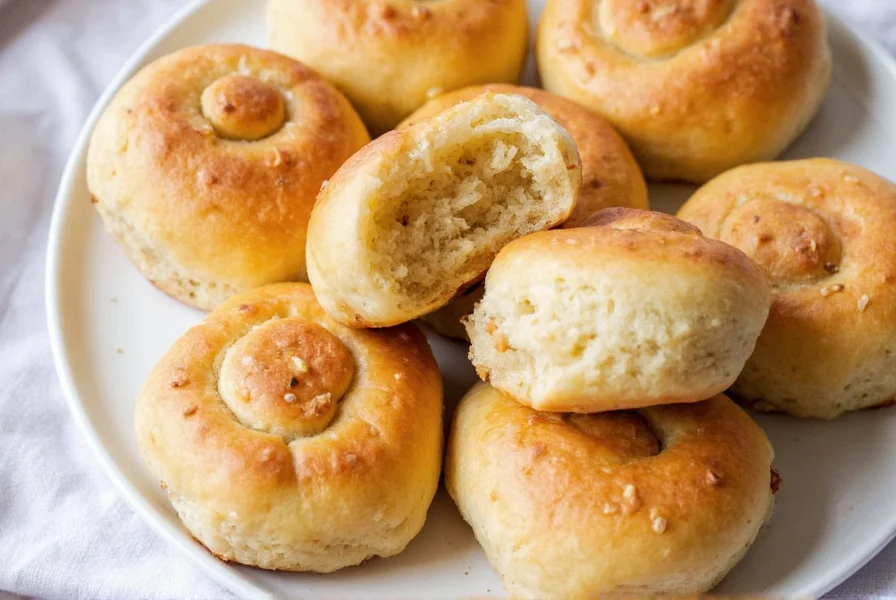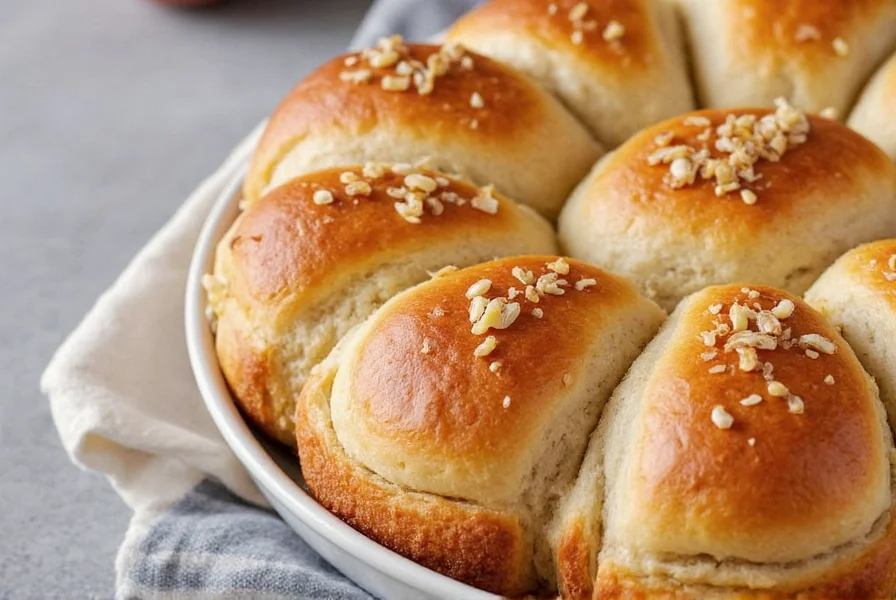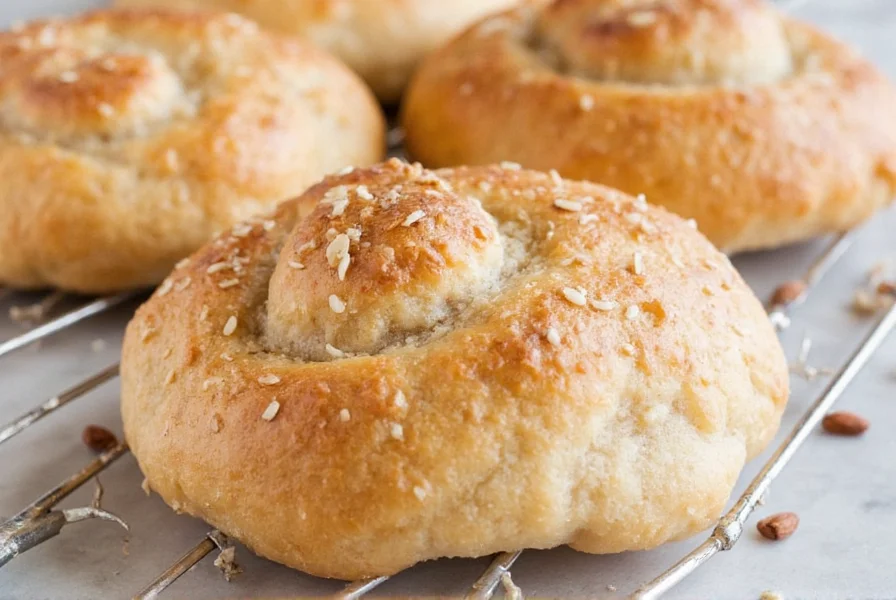Cardamom buns, known as kardemummabullar in Sweden and kardemummaboller in Norway, represent one of Scandinavia's most beloved bakery traditions. These sweet, spiced rolls have been warming Nordic kitchens for generations, particularly during the cold winter months and festive seasons. Unlike generic cinnamon rolls, authentic cardamom buns showcase the distinctive floral-citrus notes of cardamom as the star flavor, creating a uniquely Scandinavian treat that's both comforting and sophisticated.
The Essential Ingredients for Authentic Cardamom Buns
What separates a good cardamom bun from a truly exceptional one comes down to ingredient quality and proper technique. The magic happens when freshly ground cardamom meets a properly developed yeast dough. Many recipes fail by using pre-ground cardamom powder that's lost its volatile oils, resulting in bland, one-dimensional flavor.
| Ingredient | Traditional Amount | Why It Matters |
|---|---|---|
| Fresh green cardamom pods | 15-20 pods (2 tsp seeds) | Freshly ground seeds provide vibrant, complex flavor compared to pre-ground powder |
| Active dry yeast | 2 ¼ tsp (1 packet) | Proper yeast measurement ensures consistent rise without overpowering flavor |
| Unsalted butter | ½ cup (113g), room temperature | High-fat butter creates tender crumb and rich mouthfeel |
| Whole milk | 1 cup (240ml), warm | Creates softer texture than water-based doughs |
Step-by-Step Cardamom Bun Recipe
Follow these detailed instructions for perfect cardamom buns every time. This authentic Scandinavian cardamom bun recipe requires attention to detail but delivers bakery-quality results.
Preparing the Cardamom
Crack open 15-20 green cardamom pods and remove the black seeds. Grind these seeds in a spice grinder or mortar and pestle until fine. For the filling, combine 2 tablespoons of this freshly ground cardamom with ¼ cup sugar and 2 tablespoons melted butter. Properly prepared cardamom makes the difference between a good cardamom bun recipe and an exceptional one.
Dough Preparation
- Dissolve yeast in warm milk with 1 tablespoon sugar; let sit 5-10 minutes until foamy
- In stand mixer bowl, combine 3 ½ cups all-purpose flour, remaining sugar, salt, and half the ground cardamom
- Add yeast mixture and egg; mix until combined
- With dough hook attachment, gradually add softened butter while mixing on low speed
- Knead 8-10 minutes until smooth, elastic dough forms (windowpane test)
- Cover bowl and let rise at room temperature 1-1.5 hours until doubled
Shaping and Baking
Roll risen dough into 12×16 inch rectangle. Spread cardamom-butter mixture evenly over surface, leaving ½ inch border. Roll tightly from long side into log, then cut into 12 equal pieces. Place cut-side up in greased baking pan. Cover and let rise 45-60 minutes until puffy.
Bake at 375°F (190°C) for 18-22 minutes until golden brown. While warm, brush with melted butter and sprinkle with cardamom sugar (¼ cup sugar + 1 tablespoon freshly ground cardamom).
Professional Cardamom Bun Baking Tips
Mastering this traditional Swedish kardemummabullar recipe requires attention to several key details that home bakers often overlook:
- Cardamom freshness is non-negotiable - Pre-ground cardamom loses 70% of its volatile oils within 6 months. For the best cardamom bun recipe, always use freshly cracked pods
- Dough temperature matters - Ideal dough temperature after mixing is 75-78°F (24-26°C) for optimal yeast activity
- Don't skip the second rise - Proper proofing creates the characteristic light, airy texture of authentic cardamom buns
- Bake until properly done - Internal temperature should reach 190°F (88°C); underbaked buns collapse, overbaked become dry

Variations for Your Cardamom Bun Recipe
While traditional cardamom buns follow a specific formula, several authentic variations exist across Scandinavia:
- Swedish style - Tightly rolled spirals with cardamom sugar topping only
- Norwegian style - Often includes a cardamom-infused cream cheese filling
- Danish variation - Sometimes incorporates a hint of citrus zest with the cardamom
- Gluten-free adaptation - Use quality gluten-free flour blend with xanthan gum for structure
Storage and Serving Recommendations
Cardamom buns taste best the day they're made, but proper storage maintains quality:
- Store in airtight container at room temperature for up to 2 days
- For longer storage, freeze unbaked shaped buns on baking sheet, then transfer to freezer bag
- Reheat frozen buns directly from freezer: 15-18 minutes at 350°F (175°C)
- Traditional serving: With strong coffee or tea, often accompanied by cloudberry jam
Troubleshooting Common Cardamom Bun Problems
Even experienced bakers encounter issues with this cardamom bun recipe. Here's how to solve them:
- Dense texture - Usually caused by too much flour or under-proofed dough. Measure flour by weight (450g) rather than volume for accuracy
- Bland flavor - Cardamom has likely lost potency. Always use freshly ground seeds from green pods
- Collapsed buns - Over-proofed or underbaked. Check internal temperature reaches 190°F
- Dry buns - Overbaked or too much flour. Reduce baking time by 2-3 minutes next batch

Frequently Asked Questions
Can I use pre-ground cardamom instead of fresh pods in my cardamom bun recipe?
While convenient, pre-ground cardamom lacks the vibrant flavor of freshly cracked pods. For authentic Scandinavian cardamom buns, use 15-20 fresh green cardamom pods (yields about 2 teaspoons seeds). If you must use pre-ground, increase to 1½ tablespoons and add a pinch of lemon zest to revive some lost complexity.
Why did my cardamom buns turn out dense instead of light and fluffy?
Dense cardamom buns typically result from either too much flour or insufficient proofing. Measure flour by weight (450g) rather than cups, and ensure your dough doubles in size during both rises. The ideal dough temperature after mixing should be 75-78°F (24-26°C) for optimal yeast activity in this traditional Swedish kardemummabullar recipe.
How can I make my cardamom buns stay soft longer?
To maintain softness in your cardamom bun recipe, include 1-2 tablespoons of potato flour or replace ¼ cup milk with buttermilk. The natural sugars and starches help retain moisture. Also, brush warm buns with melted butter immediately after baking, which creates a moisture barrier that prevents drying.
Can I prepare cardamom buns ahead of time for morning baking?
Yes, shape the buns and place them in the baking pan, then cover tightly and refrigerate overnight. In the morning, remove from refrigerator 1 hour before baking to allow proper proofing. This slow fermentation actually enhances flavor development in your authentic cardamom bun recipe while saving morning preparation time.
What's the difference between cardamom buns and cinnamon rolls?
While similar in structure, authentic Scandinavian cardamom buns feature cardamom as the primary spice (often with no cinnamon), have a slightly drier texture, and typically lack the heavy icing of American cinnamon rolls. Cardamom buns showcase the distinctive floral-citrus notes of cardamom, creating a more sophisticated flavor profile that's less sweet and more aromatic than traditional cinnamon rolls.











 浙公网安备
33010002000092号
浙公网安备
33010002000092号 浙B2-20120091-4
浙B2-20120091-4